Just 5–7 years ago, the idea of using artificial intelligence in software development felt more like science fiction than a working concept. Fast forward to today, and AI-powered assistants and tools are part of the developer’s everyday toolkit. The IT landscape has changed forever.
Today, AI is unlocking revolutionary opportunities in software engineering—from automating repetitive tasks to generating high-quality code and streamlining quality assurance. In this article, we’ll explore the key categories of AI tools that are reshaping how developers code, test, and debug software. You’ll also discover how AI boosts productivity, enhances software quality, and allows developers to focus on more creative and strategic work.
What Are AI Tools for Developers?
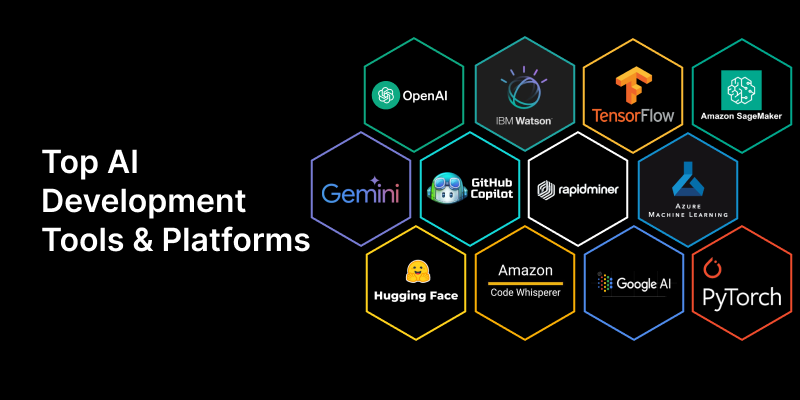
AI tools for developers encompass a broad spectrum of solutions powered by machine learning and intelligent algorithms. These tools are designed to assist or automate various parts of the software development lifecycle. Let’s break them down into major categories:
1. Code Generation and Autocompletion Tools
These tools leverage machine learning models to predict and generate code based on context, comments, or existing snippets. Acting like smart assistants, they help developers code faster and more efficiently. Popular tools in this space include:
- GitHub Copilot
- Tabnine
- Codeium
- Replit
- Amazon CodeWhisperer
2. Testing and Debugging Tools
AI-driven testing tools automate the creation of test cases, identify bugs and vulnerabilities, and even suggest or apply fixes. Key examples include:
- Diffblue Cover
- Applitools
- DeepSource
- AskCodi
- Snyk
3. Code Analysis and Optimization Tools
These tools use AI to assess code quality and adherence to best practices. They can detect performance bottlenecks, code duplication, and other issues that affect maintainability. Notable examples:
- Codiga
- SonarQube
- DeepCode
4. Documentation Tools
AI tools are increasingly being used to automate and streamline the process of creating and maintaining software documentation. Even general-purpose models like ChatGPT can significantly simplify this task. Specialized solutions include:
- Mintlify
- Scribe
5. Project Management Tools
AI is also making its mark on project management by helping teams automate planning, track progress, forecast sprint timelines, and manage risks. Popular solutions include:
- ClickUp
- Stepsize AI
- Atlassian’s AI-enhanced tools
In the sections below, we’ll take a closer look at some of these AI-powered tools and how they enhance different stages of the development process.
AI-Powered Tools for Code Automation
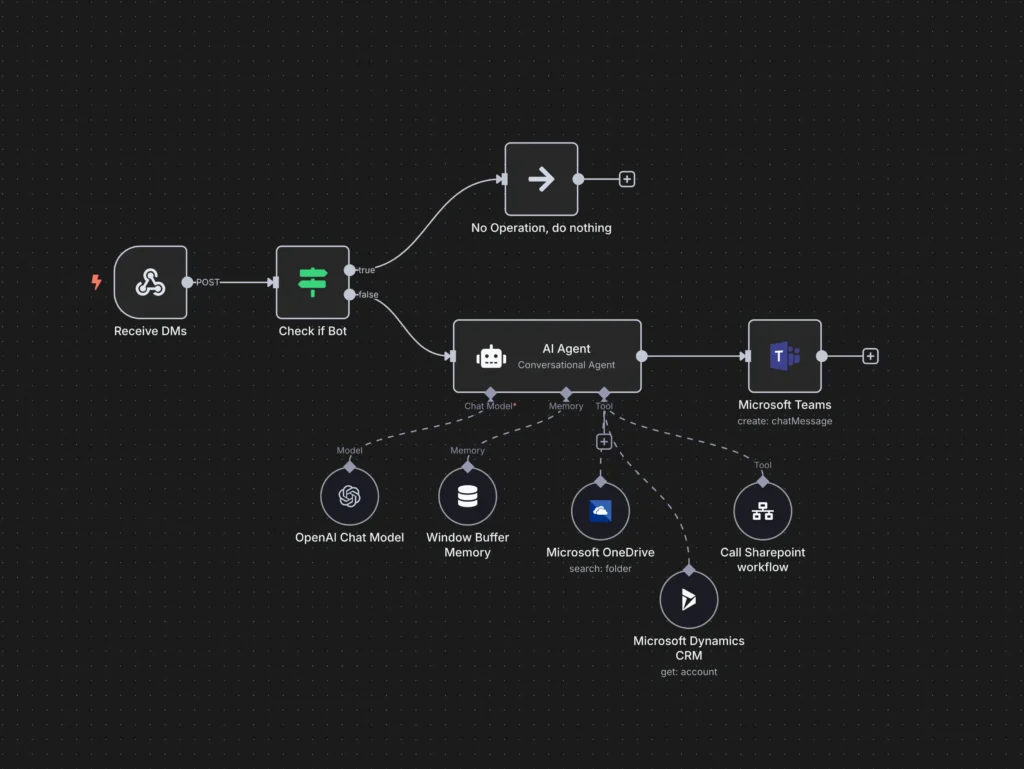
AI coding assistants are becoming indispensable for developers. A helpful code suggestion or a well-timed autocomplete can save hours of work—or at least steer a developer in the right direction. Here’s how AI assists in coding:
- Autocompletion: AI predicts and completes lines, functions, or entire blocks of code based on context, speeding up development and reducing typos.
- Code generation from natural language: Developers can describe what they want in plain English, and AI generates functional code—ideal for prototyping or repetitive tasks.
- Code recommendations: AI reviews your code, flags potential bugs or inefficiencies, and suggests improvements to ensure high quality.
- Code transformation: AI can refactor code or convert it between different programming languages.
Popular Code Automation Tools
- GitHub Copilot: Powered by OpenAI Codex, Copilot suggests code in real-time based on comments or context. It supports multiple languages and integrates with popular IDEs.
- Tabnine: Offers AI-assisted autocompletion that adapts to each developer’s unique style. It also supports prompt-based code generation and tracks usage metrics.
- Codeium: A free tool offering code completion, test generation, and natural language support. It works with 40+ programming languages.
- Replit: A cloud-based IDE with Ghostwriter, an AI assistant that can generate code, debug, provide suggestions, and more—supporting over 50 languages.
- Amazon CodeWhisperer: AWS’s real-time coding assistant that suggests code snippets, detects security flaws, and offers fixes. Integrates well with AWS IDEs and services.
AI for Software Testing
AI is revolutionizing software testing by automating repetitive tasks like test case generation and results analysis—freeing QA teams to focus on complex testing scenarios.
AI helps keep test scripts up to date by adapting them automatically to code or UI changes. Some tools also use historical data to predict error-prone areas, allowing testers to prioritize effectively.
Popular AI Testing Tools
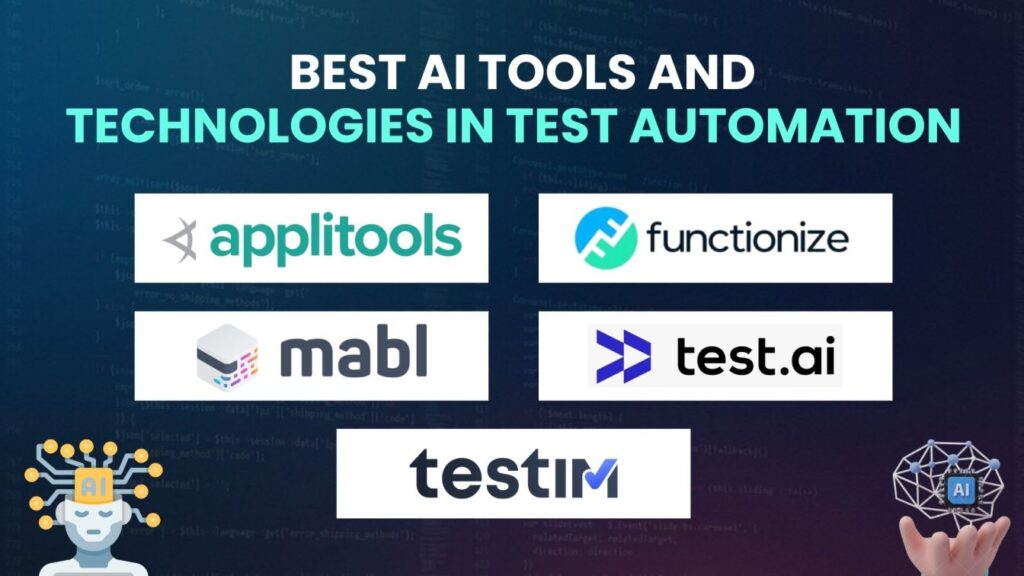
- Diffblue Cover: Automatically writes unit tests for Java, helping improve code quality and reduce bugs.
- Applitools: Uses visual AI testing to catch UI regressions and layout issues across devices and browsers.
- Testim: Uses machine learning to build and maintain end-to-end tests, reducing maintenance time.
- Zaptest: Automates test case creation and error detection, with support for cross-platform testing and a built-in AI copilot.
AI for Debugging
Modern AI algorithms provide powerful capabilities for faster and more efficient debugging. Here’s how AI helps:
- Anomaly detection: AI scans code and runtime behavior for unusual patterns that may indicate bugs.
- Error prediction: Based on past issues and code evolution, AI can forecast where new bugs might appear.
- Log analysis: AI can comb through massive log files, extract key error messages, and identify root causes.
- Autofixes: Some tools not only detect bugs but also suggest or apply corrections.
- Debugging automation: AI reduces the time developers spend on routine debugging tasks.
Popular Debugging Tools
- DeepSource: Identifies issues and security vulnerabilities in code, and offers automated fixes.
- SonarQube: Continuously monitors code quality, detects bugs, and enforces coding standards before issues escalate.
- Chatbots powered by LLMs: General-purpose models like ChatGPT and Gemini can analyze code, find bugs, and explain issues—especially useful for smaller projects.
AI for Code Optimization and Refactoring
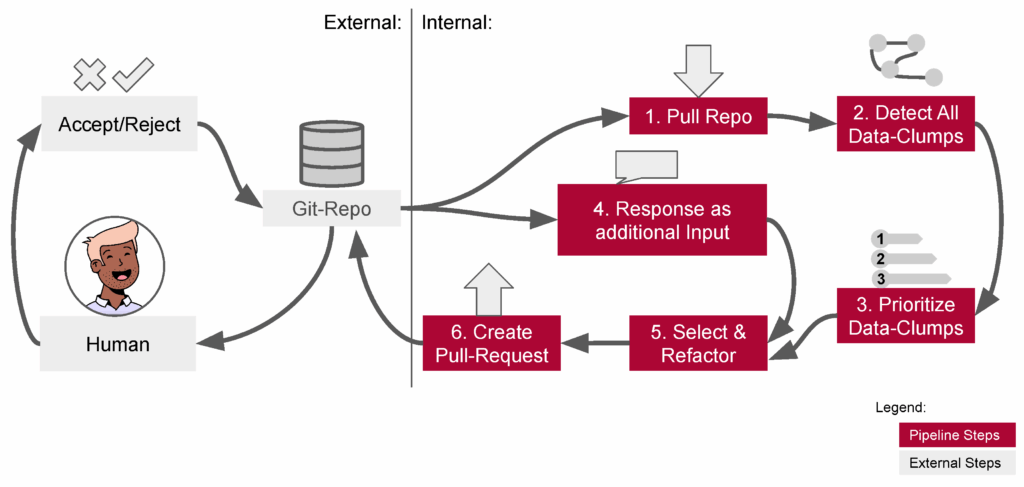
Inefficient code can slow down performance, especially as data volumes increase. Refactoring helps, but it’s often time-consuming. AI simplifies or even automates the process by:
- Code analysis: Detecting dead code, complexity hotspots, and opportunities for simplification.
- Performance evaluation: Identifying slow code paths and suggesting ways to improve efficiency.
- Automatic refactoring: Performing tasks like variable renaming, function splitting, and duplication removal.
- Test verification: Creating automated tests to ensure refactored code still works as expected.
- Smart suggestions: Guiding developers to write clean, efficient code from the start.
Noteworthy Refactoring Tools
- Codota (Tabnine): Combines natural language processing with ML to suggest improvements and refactoring.
- Sourcery: A code review tool that refactors code, finds bugs, and enforces standards.
- DeepCode: Provides semantic code analysis for smarter debugging and optimization.
- IntelliSense: Integrated into Visual Studio tools, it supports code completion and refactoring for better structure and maintainability.
Final Thoughts
AI is no longer a futuristic concept in software development—it’s a daily reality. Developers now have access to intelligent assistants that generate code, identify bugs, automate testing, optimize performance, and streamline documentation. As these tools continue to evolve, the development process will become faster, smarter, and more creative—empowering engineers to focus on innovation rather than repetition.








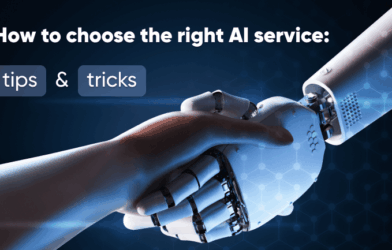


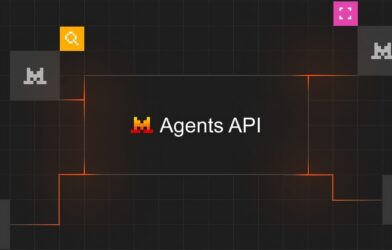

Comments are closed